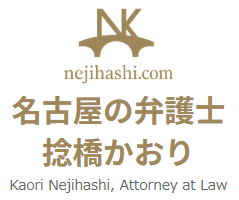If you die without a will, your estate will be distributed according to the applicable law of intestate succession. Which country’s law will be applied is a somewhat complicated issue, but please refer to the article “Inheritance without a will in Japan”.
Validity and Practical Issues of Foreign Wills in Japan
What if you have a foreign will? Is it valid in Japan?
This is a difficult question. Theoretically, a will made in accordance with foreign law is valid in Japan, if the testator is (was) the national of, resides (resided) in or has (had) domicile in that country at the time of death or at the time the will was made. The will is also valid in Japan if the testator was physically in that country when the will was made. So, foreign wills are valid in Japan in wide variety of cases.
But practically, it is not easy to execute foreign wills in Japan for several reasons. First, it is not clear whether the Japanese-type probate (explained below) will be required for such will. Second, it is not easy for Japanese institutions to decide whether such will is made in accordance with the foreign law. Third, the typical role of executor under foreign will can be different from the typical role of the executor under Japanese law due to difference in the inheritance system, which could cause confusion as to what the executor named in the foreign will can do in Japan.
Thus, most of the lawyers recommend foreigners to create a Japanese type will for the properties they have in Japan.
How to Create a Will in Japan: Two Main Types
There are two major types of will in Japan. One is the Holographic Will and the other is the Notary Deed Will.
Holographic Will – Advantages and Disadvantages
Holographic Will is a will handwritten by the testator. It is required to be handwritten and contain the name of the testator and the date it was made.
Foreigners might be interested in whether the wills need to be in Japanese – and the answer is NO. It can be written in your own language. Also, in case of foreign nationals, you are allowed to sign instead of affixing your seal as required to Japanese nationals.
A merit of making a holographic will is that it is cheap and you can do it simply at your home, at any time. All you need is a pen and some paper.
On the other hand, one of the demerits is that it not easy to make a holographic will that completely follows the legal requirements and whose contents are completely clear. Especially, the rules for making corrections are quite complicated. Also, what the testator intended in his/her holographic will may sometimes be not clear.
Another demerit is that the Japanese-type probate will be required for holographic wills whereas it is not required for notary deed wills, as explained in more detail below.
Notary Deed Will (Notarial Will /Kōshōnin Will)
Notary Deed Will is a will which will be created by a notary public (kosho-nin) in accordance with wishes of the testator. You first need to prepare a draft of the will (in most of the cases it is advisable to get lawyer’s assistance to prepare the draft), and have it confirmed by a notary public, who will create a Notary Deed Will based on the draft.
One of the merits of using this type is that Japanese-type probate (explained below) is not required for this type of will. Other merits are that the risk of the will being challenged will be smaller, and that the risk of the will being destroyed or lost is almost zero because it will be kept at the notary public office.
One of the demerits is that you need to coordinate with a notary public and visit the notary public’s office when the Notary Deed Will is finally made, and that you will need to pay fees to the notary public.
Notary Deed Will is prepared in Japanese. If you don’t speak Japanese, you will need to bring a translator with you when you visit the notary public’s office. When I assist foreigners in preparing a draft, I usually act as a translator at the notary public’s office.
Although creating Notary Deed Will takes more time and cost compared with creating Holographic Will, I feel that the advantage of choosing Notary Deed Will outweighs its disadvantage in most cases.
Combining a Foreign Will and a Japanese Will
If you already have a foreign will and then create a Japanese-type will for Japanese properties, you need to be careful about the relationship between the two wills, especially so that creation of Japanese will does not revoke your foreign will when you don’t intend to revoke it.
Will Creating a Japanese Will Revoke My Foreign Will?
Under many laws, creation of a new will can work as revocation of (whole or part of) a previous will. For example, under Japanese law, if a content of the previous will is inconsistent with the contents of the new will, the portion of the previous will which is inconsistent with the new will is deemed to be revoked by the new will (Article 1023 of the Civil Code).
However, in the context of having multiple wills in international inheritance, the testator usually does not intend to revoke the previous will or to override the previous will. The testator creates a Japanese-type will for the ease of execution of the will in Japan, but still wish to have the foreign will in effect with regards to properties outside Japan.
Practical Solution
Practical solution is to make clear in each will the scope of properties each will addresses and so that each will does not overlap or conflict with other wills.
For example, suppose you are from the state of California and have properties in the U.S. and Japan. You will most likely need to create both California type will and Japanese type will.
The California type will shall state that its scope is the properties in the U.S. The Japanese type will shall state that its scope is the properties in Japan and that it does not intend to revoke the California type will which you have already created (assuming that the California type will was created first).
What Happens After Your Death: Probate and Other Procedures
Is “Probate” Necessary in Japan?
A Japanese-type probate is required for Holographic Will (unless it is registered with Legal Bureau Office ※), but it is not required for Notary Deed Will.
What is the Japanese Probate Procedure (Kennin) Like?
The Japanese-type probate, which is called ken-nin in Japanese, is quite different from probate in other countries. The purpose of the Japanese-type probate is to preserve the status of the will in front of all heirs and beneficiaries.
After the testator passes away, the person who possess or found a Holographic Will has to make application for ken-nin to a Family Court, and then the Court will set a date for ken-nin and send notice to legal heirs (intestate heirs). On that date, the Court will confirm the statuts of will in front of the attending heirs.
As you can see from above, Japanese-type probate is usually not as much time consuming and/or complicated as that in other countries for Japanese people. But the proceeding could be burdensome for foreigners because quite often legal heirs (intestate heirs) of foreigners live abroad and the court will need to send notices to those people.
Other Legal Procedures
What needs to be noted is that no issues, such as validity of the will, will be determined in the Japanese-type probate proceeding. If an heir wishes to challenge the validity of the will, he/she has to commence a separate legal proceeding to do so.
From perspective of the testator, it is generally safer to make a Notary Deed Will so that the chance of the will being challenged by an heir will be lower.
Choosing an Executor for Your Will
You can appoint the executor in your will. Typically, you appoint either the lawyer who assisted you in preparing the will or the person who gets the most under the will. Which is better depends on your situation and contents of the will.
In one case where I assisted preparation of wills for international couples, I advised Wife to appoint a lawyer as the executor but advised Husband to appoint one of the beneficiaries as the executor.
The best choice depends entirely on your situation.
Legal Assistance and Consultation
If you have assets in Japan and want to think about preparing a will addressing Japanese assets, you are welcome to contact me for consultation. I can help you decide which type of will is suitable in your situation, and also help you draft your will so that your intent will be clear and there will be no dispute after you pass away.
I can also act as a translator during notary procedures, and, if you wish, serve as the executor of your will.
Please make an appointment for initial consultation from here.



